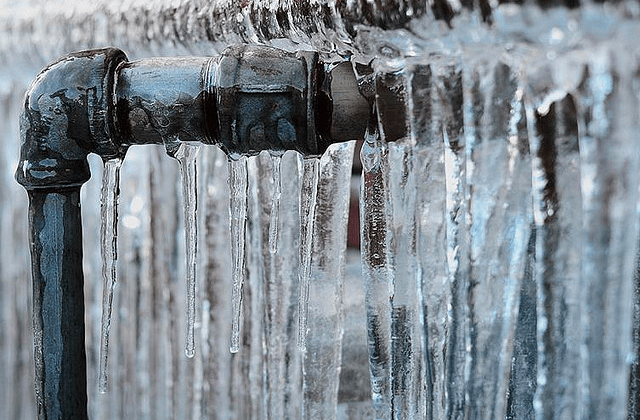Tips for Avoiding Frozen Plumbing in Winter: Expert Tips
Tips for Avoiding Frozen Plumbing in Winter: Expert Tips
Blog Article
Are you currently looking for tips on How to Prevent Your Pipes From Freezing?

Cold weather can damage your pipes, specifically by freezing pipes. Here's exactly how to avoid it from taking place and what to do if it does.
Intro
As temperature levels decline, the threat of icy pipelines rises, possibly bring about pricey fixings and water damages. Comprehending exactly how to avoid frozen pipelines is crucial for homeowners in cool environments.
Prevention Tips
Insulating at risk pipelines
Wrap pipelines in insulation sleeves or use warm tape to shield them from freezing temperatures. Focus on pipelines in unheated or external areas of the home.
Heating methods
Maintain indoor spaces effectively warmed, specifically areas with plumbing. Open cabinet doors to allow warm air to distribute around pipes under sinks.
Exactly how to determine frozen pipes
Search for reduced water flow from faucets, uncommon smells or sounds from pipelines, and noticeable frost on revealed pipelines.
Long-Term Solutions
Architectural changes
Take into consideration rerouting pipelines away from exterior walls or unheated locations. Include additional insulation to attics, basements, and crawl spaces.
Upgrading insulation
Buy high-quality insulation for pipelines, attic rooms, and wall surfaces. Appropriate insulation assists maintain regular temperatures and reduces the danger of frozen pipelines.
Securing Outside Plumbing
Yard hose pipes and outdoor taps
Detach and drain pipes garden tubes before wintertime. Install frost-proof faucets or cover exterior faucets with protected caps.
Recognizing Frozen Pipes
What creates pipelines to freeze?
Pipes ice up when revealed to temperatures below 32 ° F (0 ° C) for prolonged durations. As water inside the pipes freezes, it broadens, putting pressure on the pipeline wall surfaces and possibly creating them to break.
Threats and damages
Frozen pipes can lead to supply of water interruptions, building damages, and pricey fixings. Ruptured pipelines can flood homes and trigger comprehensive structural damages.
Indicators of Frozen Piping
Recognizing icy pipelines early can stop them from rupturing.
What to Do If Your Pipes Freeze
Immediate activities to take
If you presume icy pipelines, maintain faucets open to eliminate stress as the ice thaws. Use a hairdryer or towels soaked in hot water to thaw pipes slowly.
Conclusion
Preventing icy pipes requires aggressive procedures and quick feedbacks. By comprehending the reasons, indications, and preventive measures, house owners can safeguard their pipes during winter.
6 Proven Ways to Prevent Frozen Pipes and Protect Your Home
Disconnect and Drain Garden Hoses
Before winter arrives, start by disconnecting your garden hoses and draining any remaining water. Close the shut-off valves that supply outdoor hose bibs and leave the outdoor faucet open to allow any residual water to drain. For extra protection, consider using faucet covers throughout the colder months. It’s also important to drain water from any sprinkler supply lines following the manufacturer’s directions.
Insulate Exposed Pipes
Insulating your pipes is an effective way to prevent freezing. Pipe insulation is readily available at home improvement stores and is relatively inexpensive. Pay close attention to pipes in unheated areas such as the attic, basement, crawl spaces, or garage. Apply foam insulation generously to create a buffer against the cold. You can also wrap your pipes in heat tape or thermostat-controlled heat cables for added warmth.
Seal Air Leaks
Inspect your home for any cracks or openings that could let in cold air. Seal any holes around the piping in interior or exterior walls, as well as the sill plates where your home rests on its foundation. Additionally, make sure to keep your garage door closed unless you’re entering or exiting. Leaving it open creates a significant air leak that can lead to frozen pipes.
Allow Warm Air Circulation
During cold snaps, it’s essential to allow warm air to circulate evenly throughout your home. Leave interior doors ajar to promote better airflow. Open kitchen and bathroom cabinets to help distribute heat consistently around the rooms. If you have small children or pets, be sure to remove any household chemicals or potentially harmful cleaners from open cabinets for safety.
Let Faucets Drip
A small trickle of water can make a big difference in preventing ice formation inside your pipes. When temperatures drop significantly, start a drip of water from all faucets served by exposed pipes. This continuous flow helps prevent the water from freezing. Additionally, running a few faucets slightly can relieve pressure inside the pipes, reducing the chances of a rupture if the water inside does freeze.
https://choateshvac.com/6-proven-ways-to-prevent-frozen-pipes-and-protect-your-home/

I recently found that review about How to Prevent Your Pipes From Freezing while doing a search on the web. Enjoyed our article? Please quickly share it. Let somebody else find it. We love reading our article about How To Avoid Freezing Pipes.
Hire A Pro Report this page